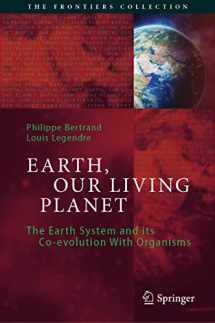
Earth, Our Living Planet: The Earth System and its Co-evolution With Organisms (The Frontiers Collection)
Book details
Summary
Description
Earth is, to our knowledge, the only life-bearing body in the Solar System. This extraordinary characteristic dates back almost 4 billion years. How to explain that Earth is teeming with organisms and that this has lasted for so long? What makes Earth different from its sister planets Mars and Venus?
The habitability of a planet is its capacity to allow the emergence of organisms. What astronomical and geological conditions concurred to make Earth habitable 4 billion years ago, and how has it remained habitable since? What have been the respective roles of non-biological and biological characteristics in maintaining the habitability of Earth?
This unique book answers the above questions by considering the roles of organisms and ecosystems in the Earth System, which is made of the non-living and living components of the planet. Organisms have progressively occupied all the habitats of the planet, diversifying into countless life forms and developing enormous biomasses over the past 3.6 billion years. In this way, organisms and ecosystems "took over" the Earth System, and thus became major agents in its regulation and global evolution. There was co-evolution of the different components of the Earth System, leading to a number of feedback mechanisms that regulated long-term Earth conditions.
For millennia, and especially since the Industrial Revolution nearly 300 years ago, humans have gradually transformed the Earth System. Technological developments combined with the large increase in human population have led, in recent decades, to major changes in the Earth's climate, soils, biodiversity and quality of air and water. After some successes in the 20th century at preventing internationally environmental disasters, human societies are now facing major challenges arising from climate change. Some of these challenges are short-term and others concern the thousand-year evolution of the Earth's climate. Humans should become the stewards of Earth.


We would LOVE it if you could help us and other readers by reviewing the book
Book review



